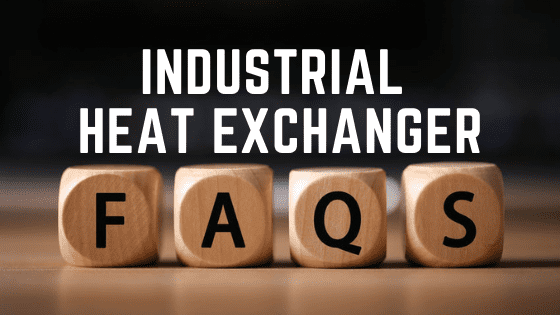Heat exchangers are key elements of industrial heating systems for facilities in a variety of industries. Alongside other major pieces of industrial heating equipment, like thermal fluid heaters, heat exchangers serve to transfer heat between fluids and gases, making various processes possible.
Looking to learn more about heat exchangers? You’ve come to the right place. Here, we’ll delve into the basics of heat exchangers and answer some commonly asked questions about these important industrial heating system components.
Answers to Frequently Asked Questions About Heat Exchangers
What Do Heat Exchangers Do?
In the simplest of terms, heat exchangers transfer heat between fluids of different temperatures within the context of an industrial process.
What Are Heat Exchangers Typically Used For?
The industrial uses of heat exchangers vary widely, especially given that they are used in many different industries and processes.
That being said, heat exchangers often work in conjunction with other heating system components in order to regulate the temperature of viscous fluids like oil and asphalt. There are a few different types of heat exchangers, each used in a slightly different way to transfer heat between materials.
What Are The Different Types of Heat Exchangers?
Industrial heat exchangers come in a variety of sizes and styles, including:
- Bayonet Heaters: This type of heat exchanger attaches to the side of a tank. They have the capacity to heat an entire tank filled with fluid.
- Shell and Tube Heat Exchangers: These heating system components are designed to heat fluids from outside the storage tank through the use of hot oil or steam.
- Suction Heaters: These are designed to heat fluids as they are pumped, rather than heating an entire storage tank of material at once. They use hot oil or steam.
You can learn more about the specifics of each type of heat exchanger here.
How Can You Determine Which Type of Industrial Heat Exchanger You Need?
The main way to figure out which type of heat exchanger will work best for you is to think about the application it will be used for. Uses vary from industry to industry, so another good option is to talk to others in your industry to determine which option has worked best for them.
It’s also a good idea to reach out to an industrial heating equipment company (like us) to find out if there might be a specific heat exchanger or customized solution that will work best for your scenario.
Can Heat Exchangers Be Customized?
Absolutely! While many companies offer standardized heat exchanger options, heat exchangers are customizable and can be custom built if necessary.
If you’re looking for a custom solution to work for your facility, don’t hesitate to reach out. We often build completely customized solutions for our clients so we are used to designing equipment that meets specified needs and specifications.
What Are Some Signs That My Industrial Heat Exchanger is Failing and Might Require Replacement?
There are a number of signs to look for that may indicate that your current industrial heat exchanger is failing. A few signs include:
- Loss of efficiency
- Change in the rate of heat transfer
- Physical damage, such as cracks or erosion
- Leaking fluid
If you come across any of these signs, it’s worth further investigation to determine the cause and correct the issue, either through repair or through heat exchanger replacement.
Looking for Additional Details About Industrial Heat Exchangers?
Interested in learning more about our industrial heat exchangers? These resources are a good place to start:
Industrial Heat Exchangers from Enerquip – Find additional details about the various heat exchangers we offer, including customized solutions.
What Type of Heat Exchanger Do You Need? – Explore the similarities and differences of the various heat exchangers we have available to determine which option may be right for your facility and application.
Have a question about heat exchangers that you don’t see answered here? Just give us a call at 715-748-5888 or request a quote and we will be happy to provide the information you’re looking for!
Interested in other FAQs about thermal fluid heating equipment? Check out our other industrial heating system FAQ pages here.

